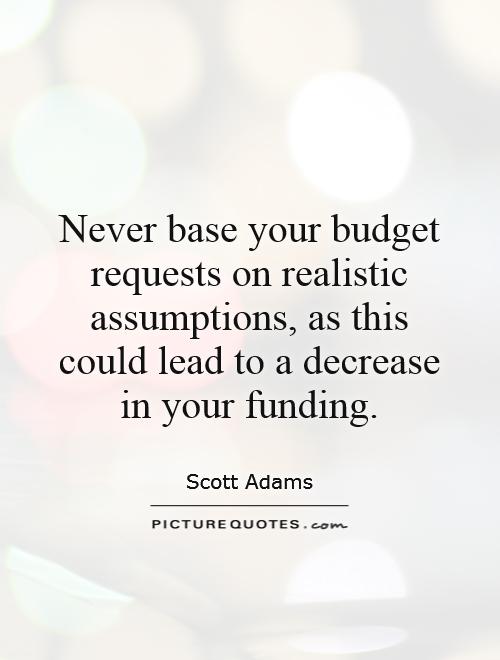Never base your budget requests on realistic assumptions, as this could lead to a decrease in your funding

Never base your budget requests on realistic assumptions, as this could lead to a decrease in your funding
Scott Adams, the creator of the popular comic strip Dilbert, is known for his satirical take on office culture and the absurdities of corporate life. In his book "The Dilbert Principle," Adams humorously explores the idea that budget requests should never be based on realistic assumptions, as this could lead to a decrease in funding.Adams argues that in the world of corporate finance, it is often more effective to make bold and exaggerated claims in order to secure the necessary resources for a project. By presenting an inflated budget request, one can create the illusion of greater need and urgency, thereby increasing the likelihood of receiving the desired funding.
Adams' advice may seem counterintuitive at first, as one would think that presenting a budget based on realistic assumptions would be the most honest and transparent approach. However, Adams suggests that in the cutthroat world of business, honesty and transparency are not always rewarded. Instead, he advocates for a more strategic and manipulative approach to budgeting in order to achieve one's goals.
By exaggerating the costs and benefits of a project, one can create a sense of urgency and importance that may sway decision-makers to allocate more resources. This tactic may be seen as unethical or deceptive, but Adams argues that it is simply a necessary strategy for navigating the complex and competitive world of corporate finance.












 Friendship Quotes
Friendship Quotes Love Quotes
Love Quotes Life Quotes
Life Quotes Funny Quotes
Funny Quotes Motivational Quotes
Motivational Quotes Inspirational Quotes
Inspirational Quotes